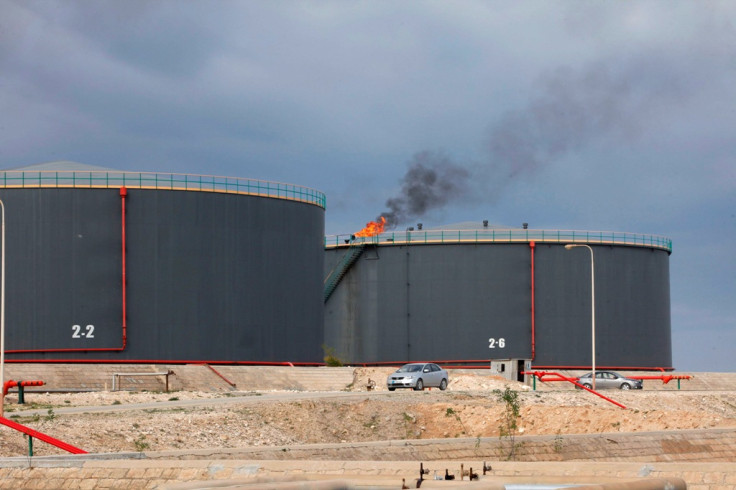Oil Dispute Costs Libya More than £10bn

The protracted oil dispute between federalists in eastern Libya and the central government has cost the country £10.8bn in lost oil trade.
Since rebel groups seized oil ports in the east of the country in July 2013, production has plummeted from around 1.5 million barrels and is currently operating at about a fifth of that capacity.
Speaking on the sidelines of a conference in London, a spokesman for the National Oil Corporation revealed the scale of the losses.
"We are losing a lot. I can't tell you exactly the number. From July 2013 until now we have lost 22billion dinars (£10.8bn, $18.1bn, €13.3bn)", Mohamed El-Hariri said.
Since the capture and killing of former president Muammar Gaddafi in 2011, Libyan authorities have struggled to control the armed groups that ousted him. The ensuing disorder has pushed up the price of crude oil on international markets.
Rebel groups seeking greater autonomy from the central government have relinquished control of two ports, they continue to occupy the major eastern ports of Ras Lanuf and Es Sider.
The rebels have previously denounced Libya's new prime minister Ahmed Maiteeq, stating that his election was illegitimate.
"We refuse to deal with Ahmed Maiteeq... Maiteeq came to power illegally," said rebel spokesman Ali Hasi.
The groups have backed the actions of retired general Khalifa Haftar, who the government has accused of launching a coup.
Forces loyal to the former general have launched airstrikes in the eastern city of Benghazi twice in May, while a group allied with the general stormed the Libyan parliament in the same month.
NOC Spokesman El-Hariri said the stand-off which has halted most of the country's oil production could do long-term damage to the industry's infrastructure.
"We hope we will get back to 1.5 million. Maybe we're going to lose some wells. Some wells are working by pumps, some wells may be damaged," he told journalists at Libya's Third Oil and Gas Forum.
However, he remained hopeful that the end of the security crisis would allow Libya to exceed its former capacity of 1.5 million barrels per day.
"If we didn't face any technical problems we could get back soon to 1.6, more than 1.5 million by Libyan employees, without any outside help," he said.
© Copyright IBTimes 2024. All rights reserved.






